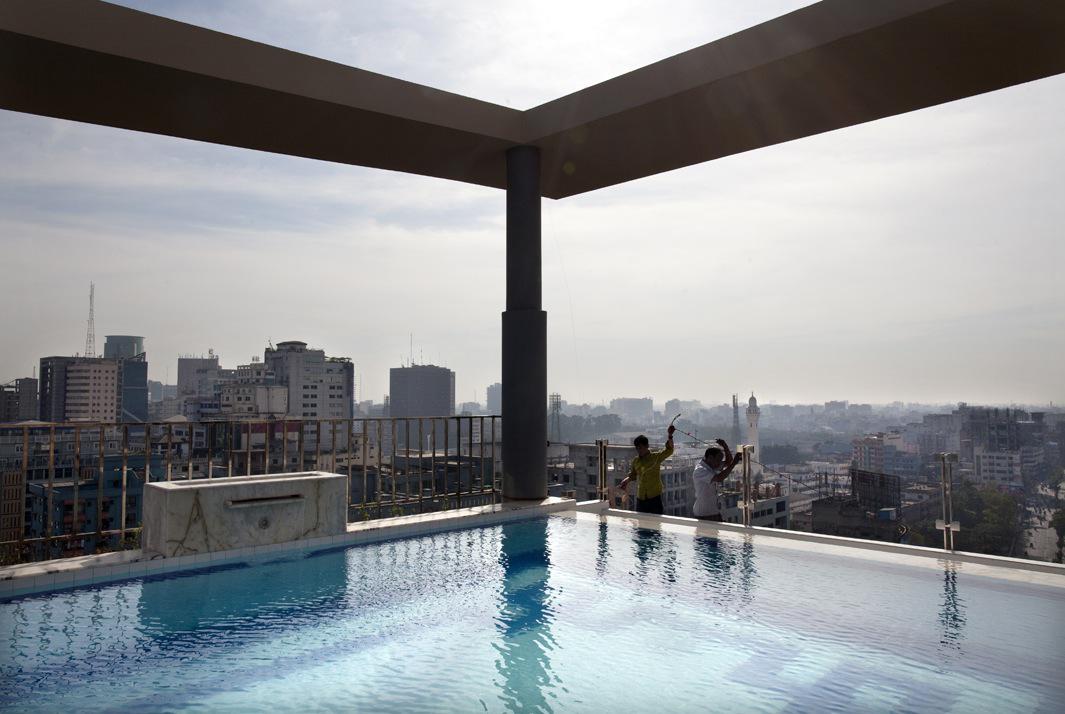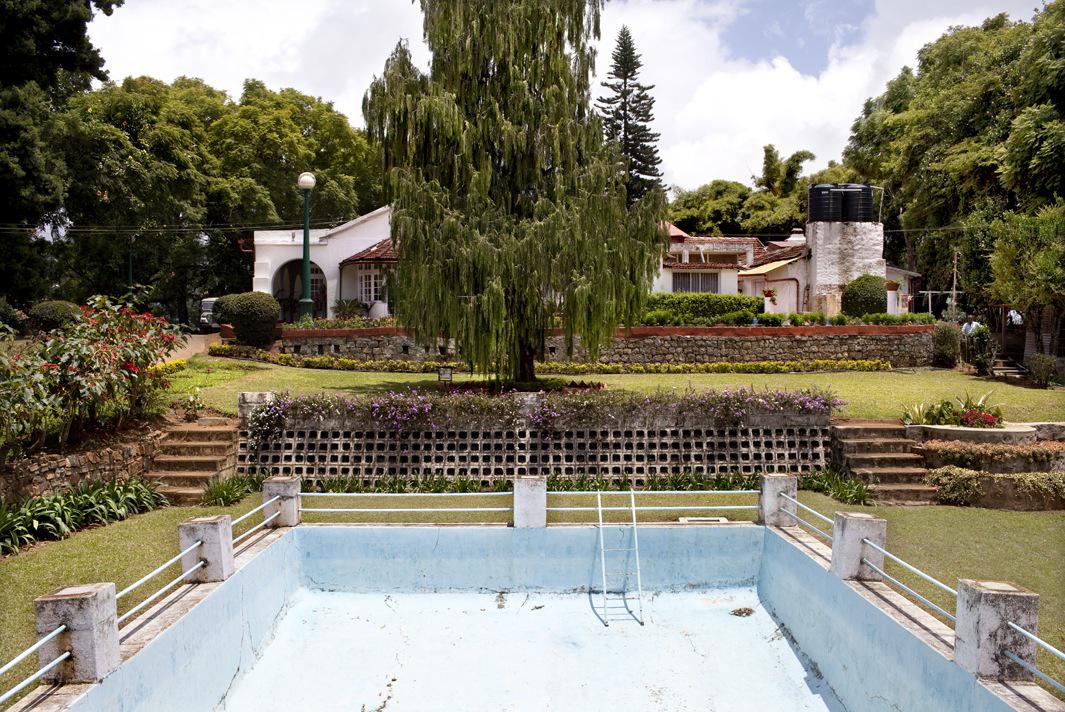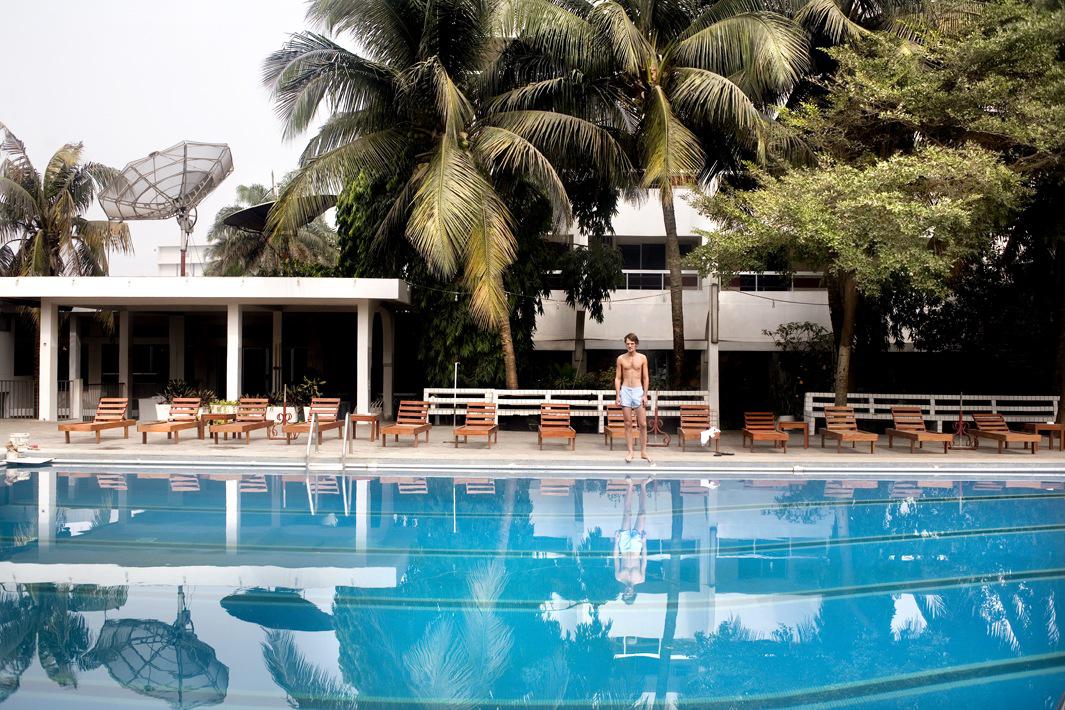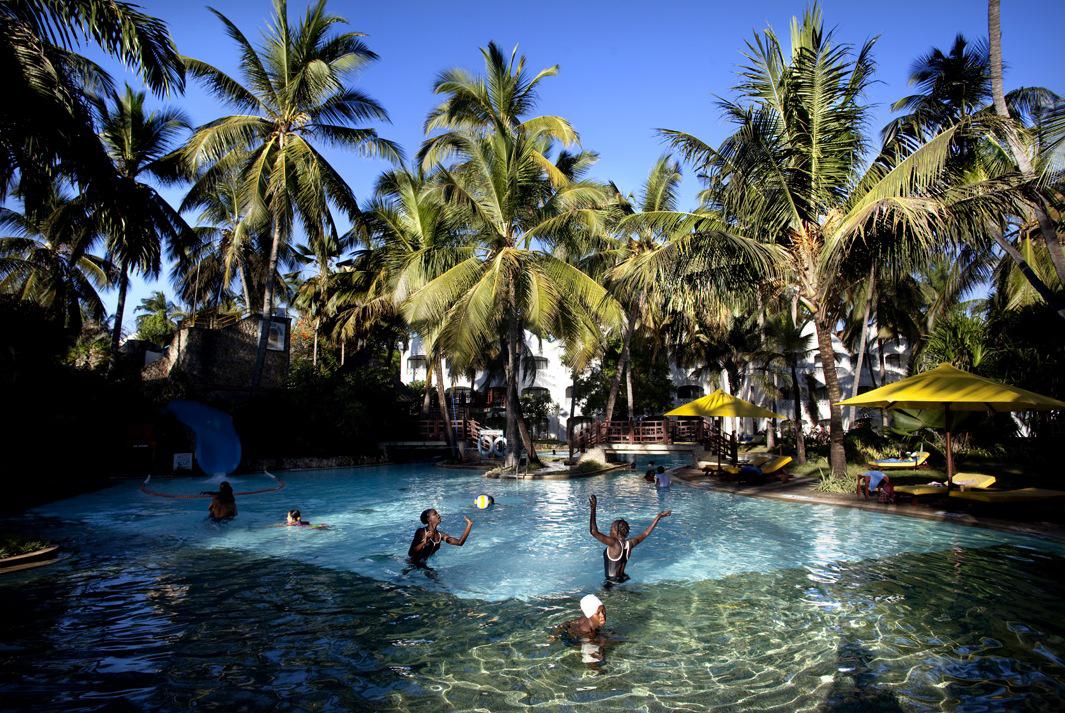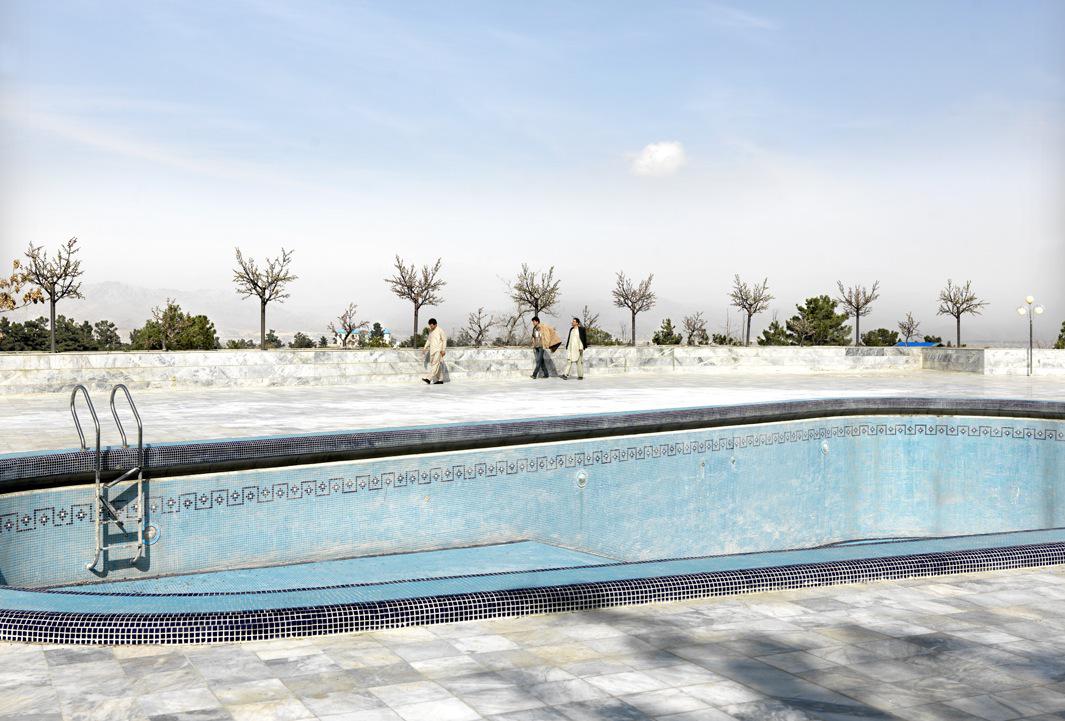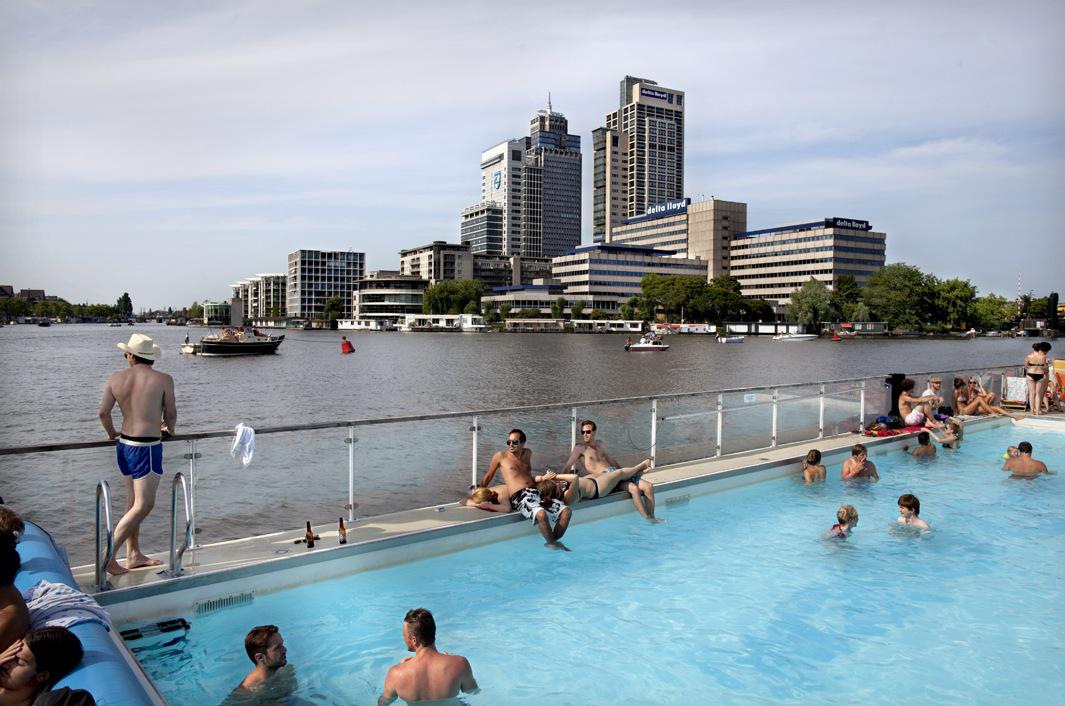Marieke van der Velden’s photography has taken her all over the world. In 2008, she started an unusual sort of travel diary, when she began taking images of swimming pools in the places she visited. “I found out that in every place I go, there is a swimming pool,” van der Velden said via email. “Being in the neighborhood of a swimming pool always gives me a good feeling, a feeling of rest, like I’m on holiday. That’s a good reason to start a series.”
When on assignment in a new country, van der Velden likes to ask her driver or translator where she can find an interesting pool in the neighborhood. “They always look surprised because they think I want to swim or something. But I don’t have time to swim,” van der Velden said. “Then I explain that I’m doing a project about swimming pools around the world. They start smiling and try to help me with a good spot.”
Van der Velden’s pools may look different from one another, but she said they are similar in that they all tell stories. Sometimes, she said, the pools can be symbolic of a country’s history or character. But she also recognizes her own hand in shaping that narrative. “Each location has so many layers, and I’m aware of that,” she said. “For example, in Colombia, I chose to photograph an empty, old pool, but 500 meters away there was a new one. That’s the power of photography. You can show whatever you want.”
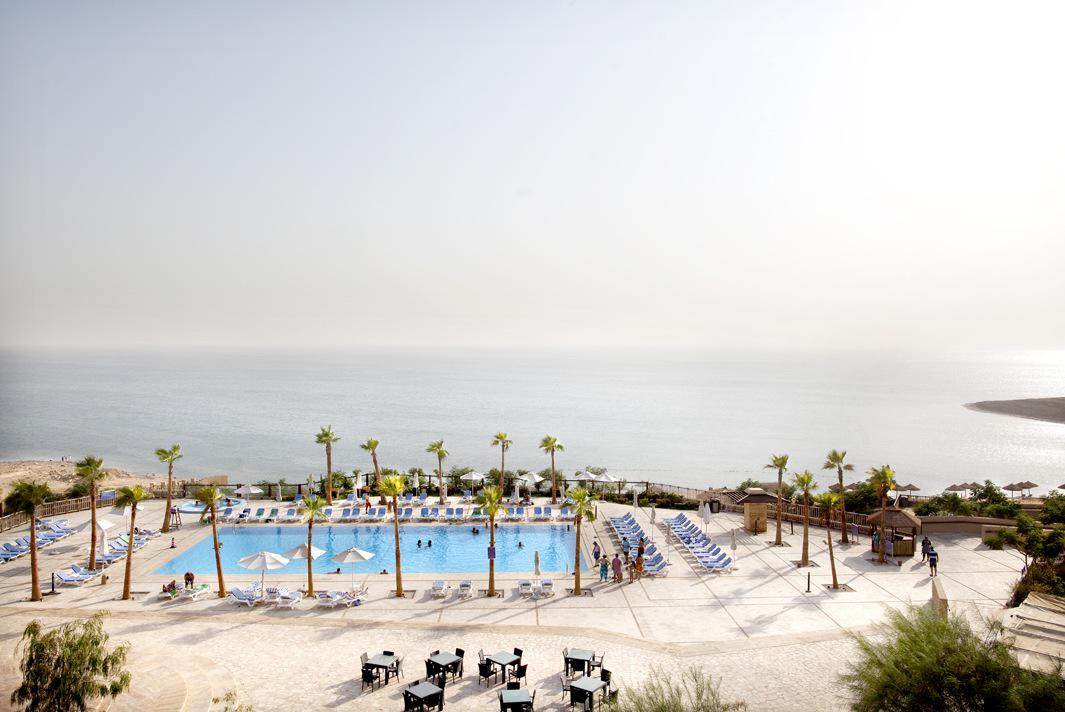
Marieke van der Velden
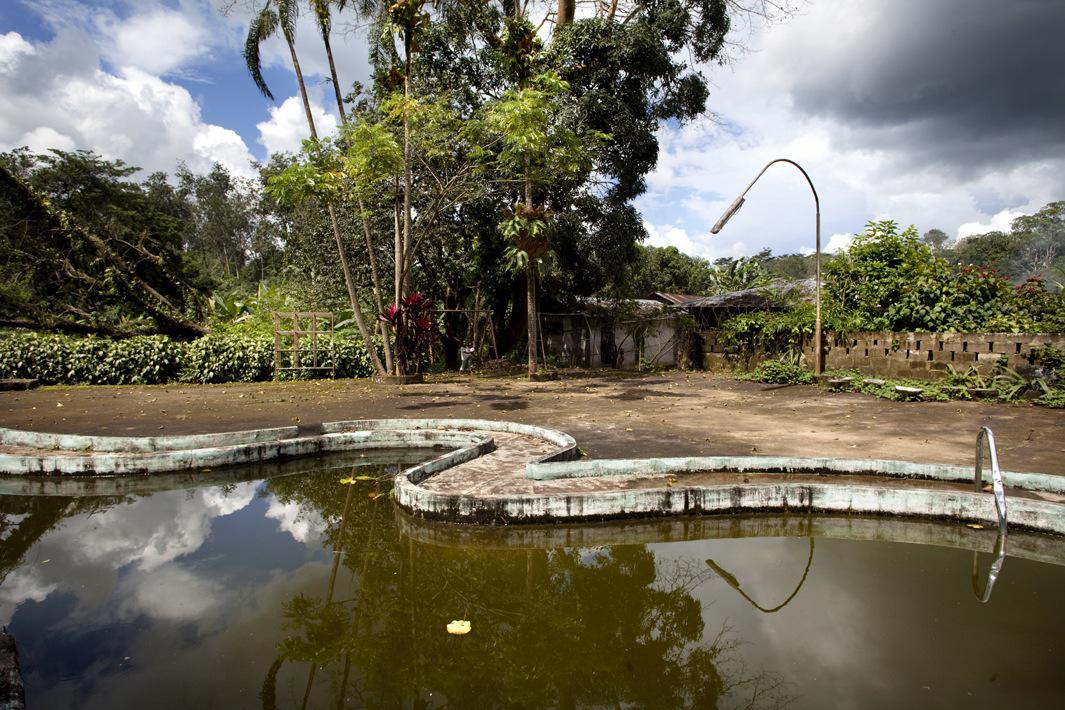
Marieke van der Velden
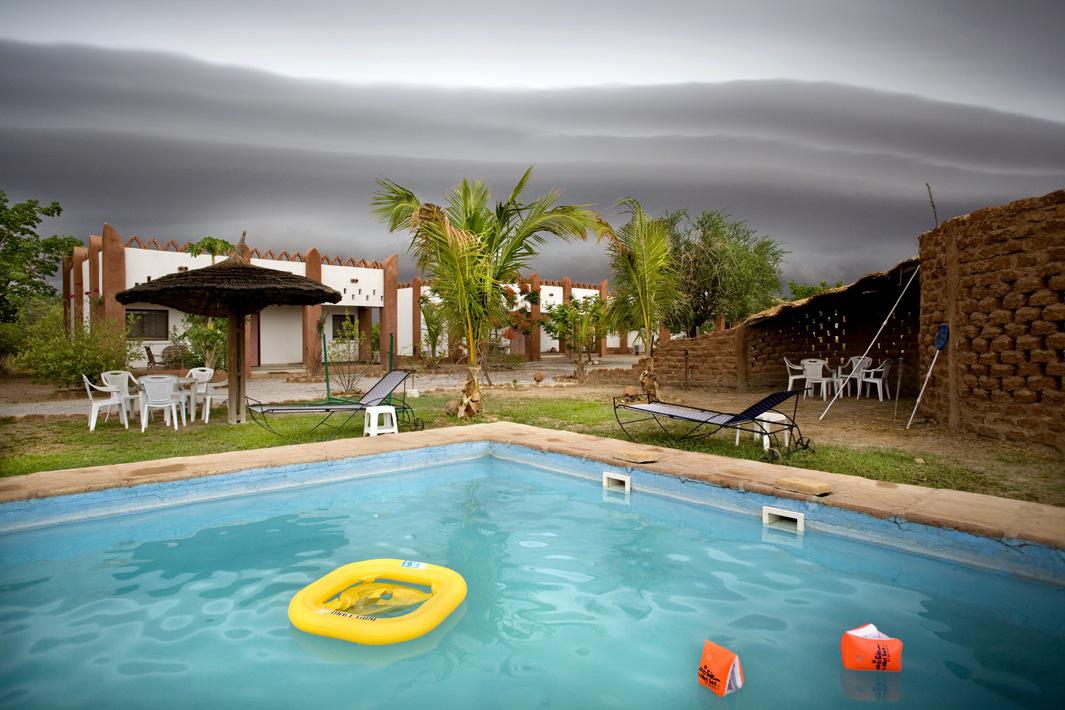
For van der Velden, the pools had various personal meanings. In Iraq, the calm and fun of the swimming pool presented a great contrast to the dangerous area surrounding it. “In a city where you always feel the threat of unexpected bomb attacks, this felt like a safe area,” van der Velden said. “In Baghdad, I saw so many young boys who were so playful when they got the chance to enjoy a swimming pool.”
Watching construction workers on a small ledge near a pool in Bangladesh, meanwhile, drew van der Velden’s attention to the great differences in human experiences. “These construction workers were there on their bare feet working on the 10th floor of a building in the hot sun. One mistake and they’d fall 10 floors down. They earn $1 to $2 a day. And I’m one of the people allowed to do everything, like swimming in this pool, having dinner in this hotel, and so on.”
For the most part, van der Velden said, she doesn’t swim in the pools she photographs, mostly for practical reasons. “When I swim, I can’t make photographs,” she said. “So I’m walking around the swimming pool and don’t even feel the need to swim. I like photography much more.”
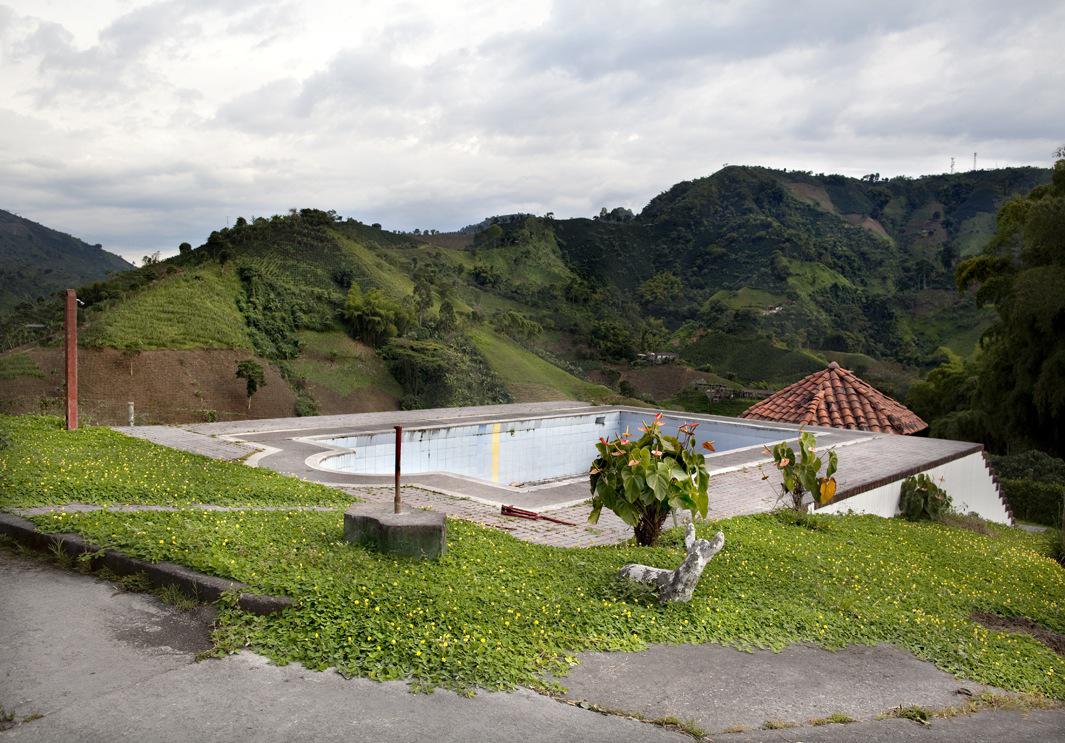
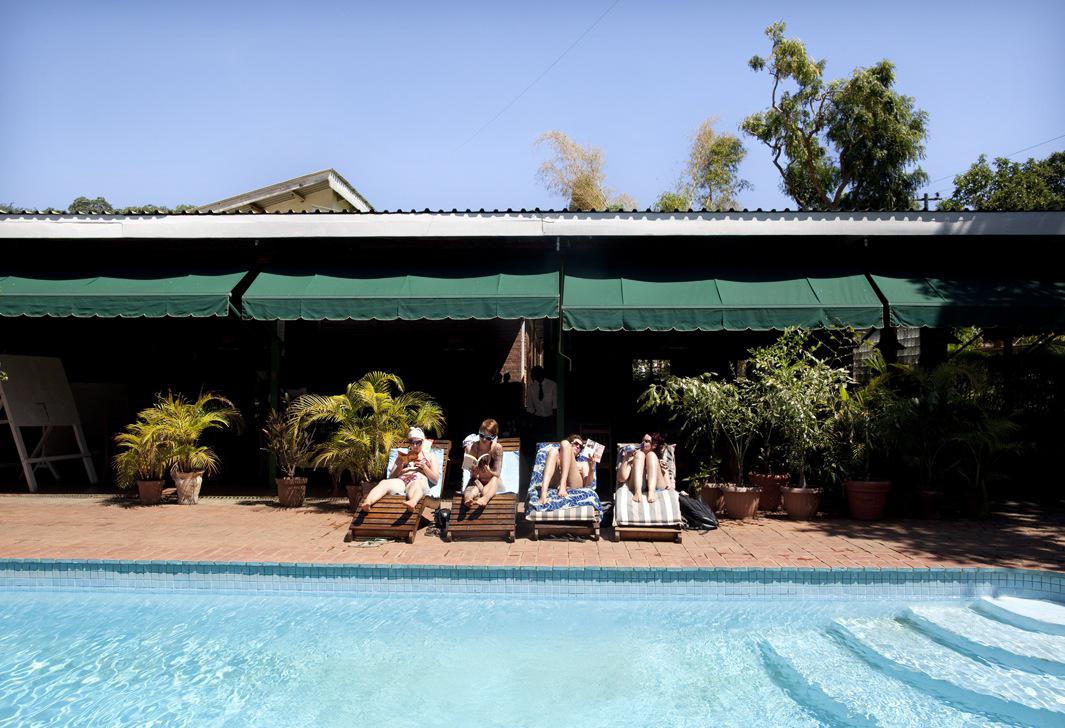
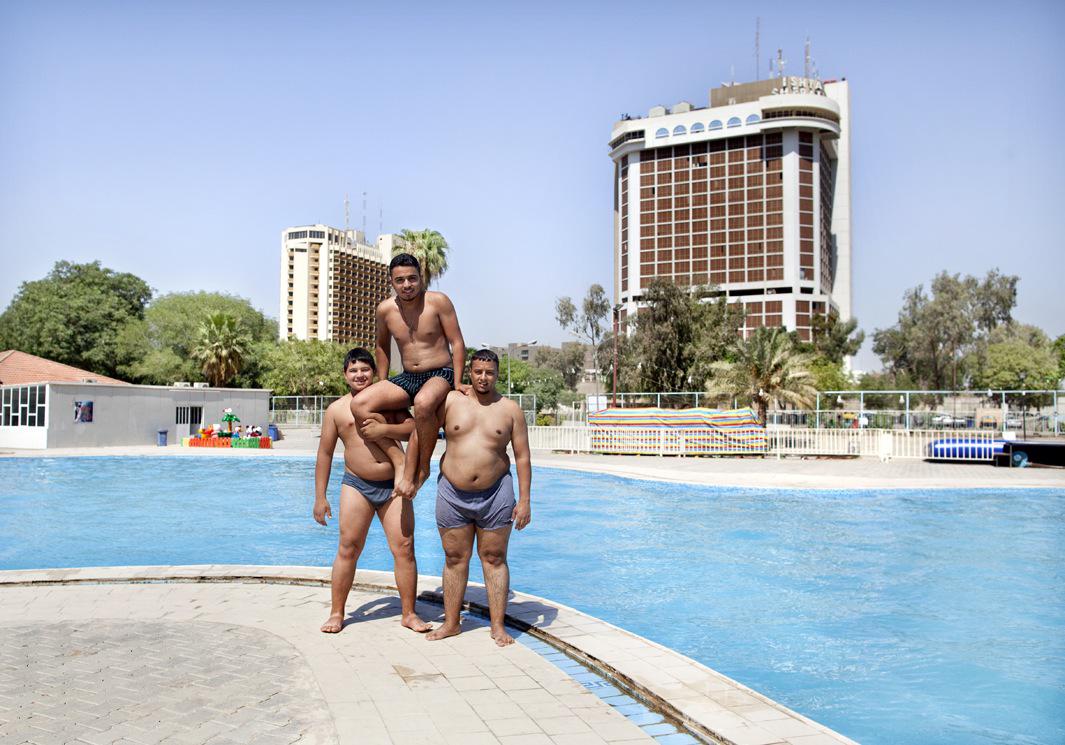
Marieke van der Velden
